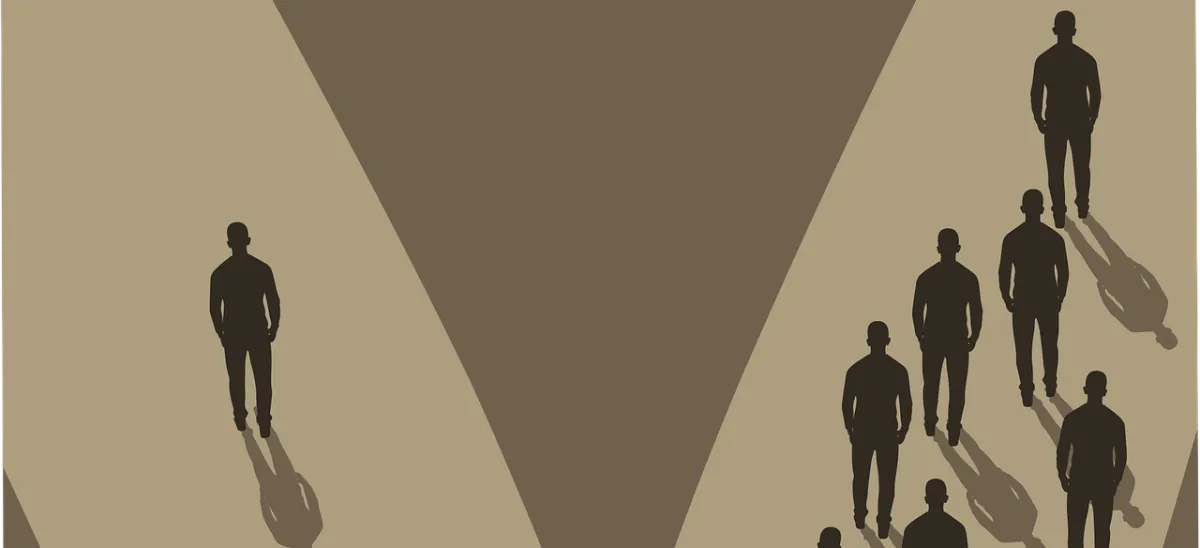Cost of Living Crisis: The UK Government Is Failing Disabled People Yet Again, Including My Family
As a disabled family, this mass inflation is constantly hanging over our heads.

Access the Audio Read version of this article directly on Spotify for Podcasters.
"My family and I are a prime example of how frightening the cost of living crisis is. It is something that is constantly hanging over our heads like a thick, dark and grey rain cloud."
If you live in the UK in 2022 - or most parts of the world for that matter - you’re more than likely to be aware of the mass inflation happening, which is worsening day by day.
The cost of living has gone up exponentially, and 10 million UK adults are struggling to make ends meet, according to HR News, far more than they were just six months ago.
While everyone has been impacted heavily by this sudden and overwhelming surge in cost, there is one community that has been hit particularly hard, and who have had their concerns and fears dismissed for years: the disabled and chronically ill.
You may be wondering why and how the cost of living crisis could possibly affect disabled, lower income people more than able-bodied, lower income people. And the truth is, many factors have created that equation.
While not all disabled and/or chronically ill people are unable to work, a lot of us aren’t able to hold down stable or full-time jobs, which means payments are very much sporadic.
We in turn rely on benefits to, in theory, supplement the income that we would be receiving were we able to work full-time - although the monthly amount of money given to disabled people is often far below minimum wage, and is barely enough to survive on at the best of times; so you can imagine how much harder life on benefits has become for disabled families in the wake of this current crisis.
Disabled people in the workforce don’t have it any easier. They often face discrimination, and are less likely to be hired or to be paid equally in comparison with their able-bodied colleagues.
Many disabled people also face dietary restrictions which can quickly become expensive, and may need medical equipment such as mobility aids, medication, and costly treatments if not treatable on the NHS - among other things. From April 2021 to April 2022, domestic gas prices increased by 95% and domestic electricity prices by 54%, according to the House of Commons Library. For those who are unable to drive, the cost of transportations to and from hospital appointments also adds up, as well as the one needed for other daily tasks.
My family and I are a prime example of how frightening the cost of living crisis is. It is something that is constantly hanging over our heads like a thick, dark and grey rain cloud.
Ever since I was young, money has been a precarious thing, at best. I never truly understood what that meant when I was a child, but I knew it wasn’t good. Throughout my younger years, my mum did take a few jobs sporadically and my dad worked (and still does) full-time, but our financial situation was still fragile. One wrong move and it would all crumble.
It worsened when my parents separated, and my mum, my sister and I moved out to a new place together, still in our hometown of Bristol. All three of us are disabled.
My sister, who is 26, is unable to work due to her health. She has been chronically unwell since she was very young, and is currently house-bound as a result of multiple different complex health conditions, though it is her endometriosis that is the main culprit in the severity of her symptoms, which inhibits her from working.
Up until last year, I was in the same boat, but even now my situation is on a rollercoaster ride. I’m currently unable to hold down a stable job because that requires a certain kind of stability in my health, which I don’t have, though I am a freelance writer – taking jobs only when my health permits. I, much like my sister, have been chronically ill since I was seven, and also have several different complex diagnoses, and some undiagnosed issues that affect me and my quality of life daily.
Then we have my mum. My mum, now 49, had always enjoyed working, but she eventually had to stop working for her own health, after having diagnosed SLE lupus with a mixed connective tissue disease overlap (amongst other health issues) since she was 16. She also had to become a full-time carer for my sister and I. Most days over the past few months, we have had chats about our financial situation and how we were going to get through it.
Those conversations almost always end with the same amount of anxiety we had when they started - because, at the end of the day, we don’t know how, or even if, we’ll be able to get through this at all and stay afloat.
Every time my mum comes back from shopping, she tells me which prices have drastically gone up. Even things like biscuits, crisps or drinks are going up by 25, 50, 75p, sometimes even more, and, at the same time, the shelves are also continuing to grow threadbare. That list is getting longer by the day. It is harrowing and truly terrifying.
Supermarkets are offering support and discounts to the elderly, but what about disabled people who are unable to work, or have a significantly reduced income?
It really begs the question: Why are disabled people's needs and fears continuously overlooked and forgotten about? Why do our lives need to be in jeopardy in order to be listened to by able-bodied people?
And most importantly, why is the government continually failing us?
Disabled people have been screaming and shouting from the rooftops that we are being disproportionately affected by this crisis.
We have pleaded to get able-bodied folks, and the government itself, to listen to us when we say that we need help. We need added support, or the shortfall in income of £367 a year that disabled people have been confronted with will keep growing, and will render this community bankrupt, out of equipment and the treatments needed to keep us safe and alive, and in a financial situation far worse than we could possibly begin to imagine. This plea can no longer be ignored.





